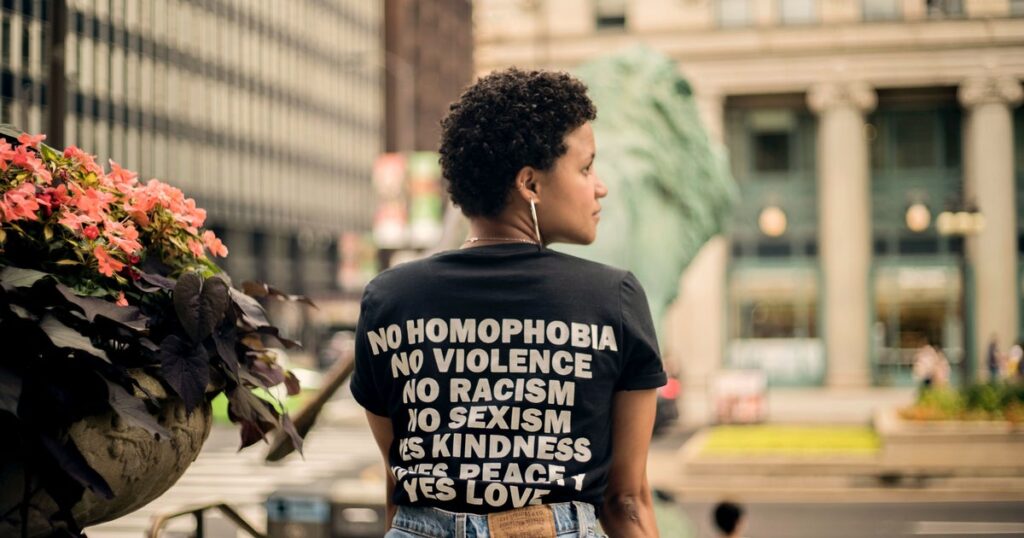Apathy

[ad_1]
The opinions expressed in this article are the writer’s own and do not reflect the views of Her Campus.
This article is written by a student writer from the Her Campus at Ashoka chapter.
If you are someone who is aware of the general state of affairs of this world, then you probably are aware of the hellhole that it is. With issues like climate change, capitalism, wars, genocides, political instabilities and the like, we know that we are not living in ideal conditions- well, at least most of us humans because there is a small section of people who are not affected by these problems (at least for now). Ultimately, while the magnitude of how much issues of the world affect different people differs, there always is a section of society who will be disproportionately affected by them, whether it be losing their families and homes due to war or climate change or losing their rights to live with dignity. The good news (however cynical one might be) is that those of us who are not affected on that level can always take some action on our part, whether it be creating awareness or just listening and amplifying the voices of those who are affected. The first step to that, however, is to be aware of what the issue (or issues) is and how it affects people, and the first step to that is to stop being apathetic.
Here’s the thing- almost all of us have a basic awareness of whatever is going on in the world even if we may not know the specifics. Yet, a lot of us privileged ones choose to ignore them because we think they don’t affect us. In fact, there are many privileged people (Here, I am using privilege as a relative term because in any group of people in a society, an individual can be marginalised in one sense but privileged in another which means not everyone is affected by things in the same way even if they are of a similar position) who think that being updated about such things when they aren’t directly related to their individual lives is more of an accessory or a waste of time. Why is it so? While I don’t have a definite answer or a correct answer, I have a few speculations on why it is so. One of them is a more obvious one, which is that the status quo doesn’t affect them in, so they don’t find any merit in caring about the issue(s). This is a reflection of their socio-political, sometimes cultural privilege in their society which allows them to do so. There are times when this is connected with their distance to the issue, more in a physical sense as they might think that there is no point in caring about an issue that is happening in a place far from where they are.
The other strand of this is a more obvious sort of apathy which manifests as a resistance to taking any action that can address the issue- those who are not affected usually benefit from the status quo either directly or indirectly and since it benefits them, addressing it would mean that there is a potential for change and in the event of change, would mean having to acknowledge and let go of those privileges either partly or entirely hence they show resistance to it.
From both these, it can be seen that apathy is one of the functions of privilege. However, it is not a rule as there are plenty of people who are empathetic towards causes that have nothing to do with them.
There is also a newer strand that I’ve observed mostly with the privileged Gen-Z who are usually more aware of issues and want them to be addressed. I would say that this kind of apathy is something that happened gradually over time because it doesn’t make sense to me otherwise that a person or people who is/are known for being proactive towards change start to live with the status quo (albeit begrudgingly). This is a result of cynicism that happens when you start to be more and more aware of how things actually work and how systematized a lot of issues are. Although the reason for this development can be attributed more to the overall system and the people who control it from the top, it is still a concerning development because pessimism will not lead to any kind of action. An acceptance of the status quo, however unwilling is acceptance nevertheless, which is, again, an aspect of apathy.
Now, what are we to do about this? Certainly not continue with being apathetic and/or willfully ignorant because we can’t continue living in a world that is burning. It is unrealistic to directly take action for all issues and certainly for those that we as individuals are not the directly causing. So what do we do? For starters, let’s start being more aware of things and update ourselves, whether it be climate change news, news on court judgements, laws and policies that affect marginalized groups of people and even news on wars and inter-state conflicts. Additionally, we can start being more aware of our own biases and find out where they stem from and how to deal with those- it is a difficult step and might be time consuming but it is an important one. Also, don’t be a “neutral” party or take a “neutral” stance on certain issues because not everything has two sides. To sum it up, stay woke.
[ad_2]




